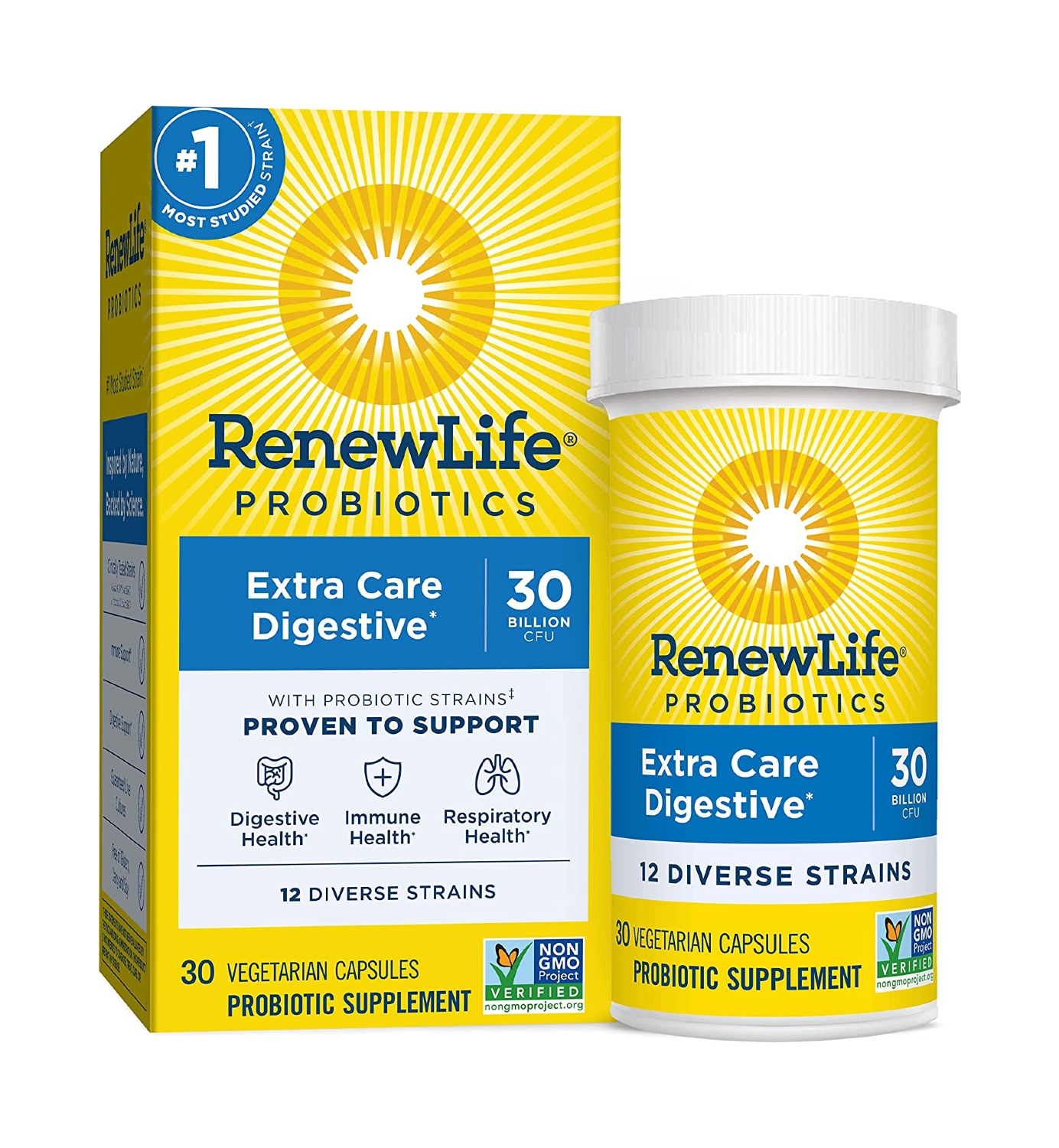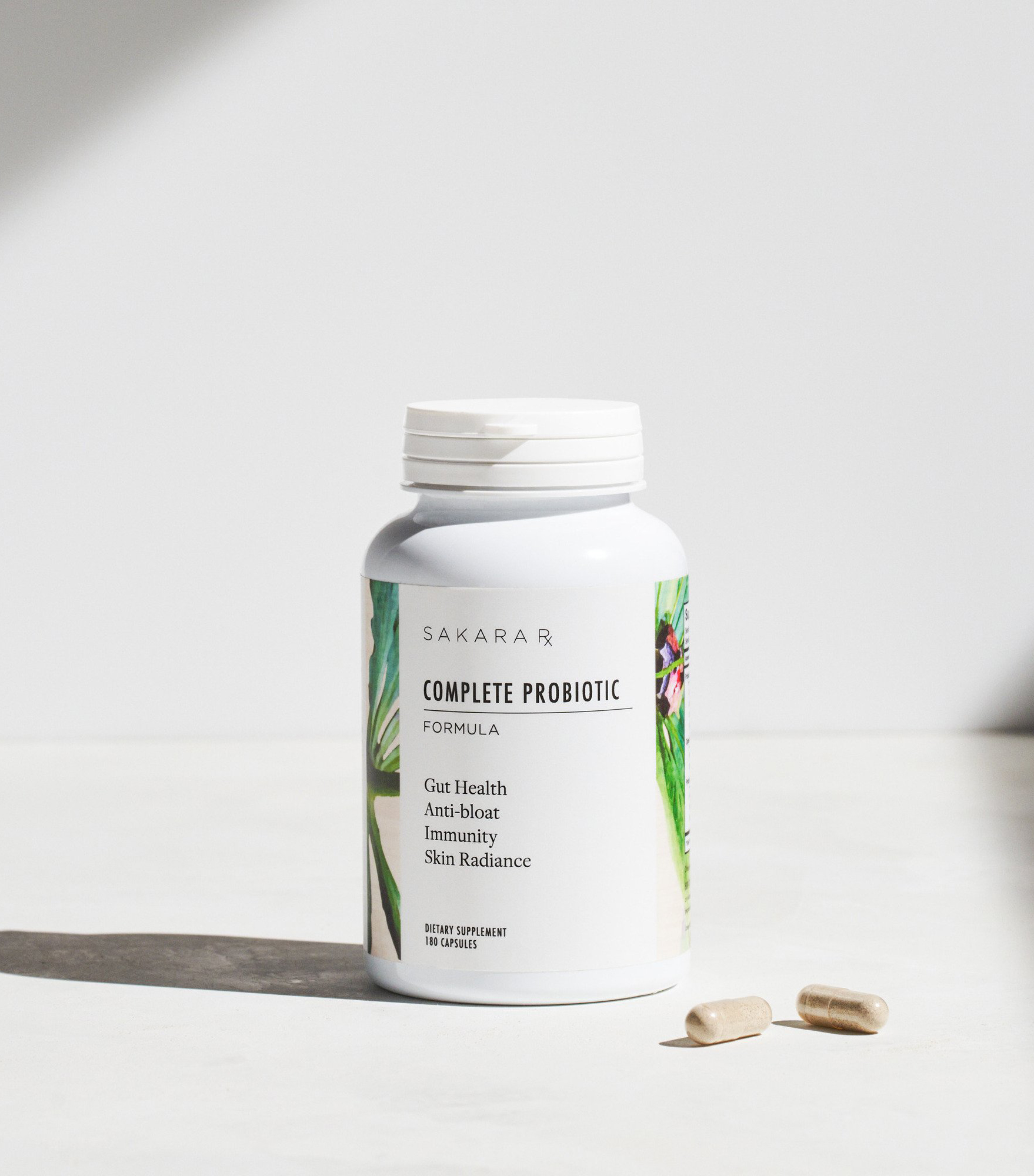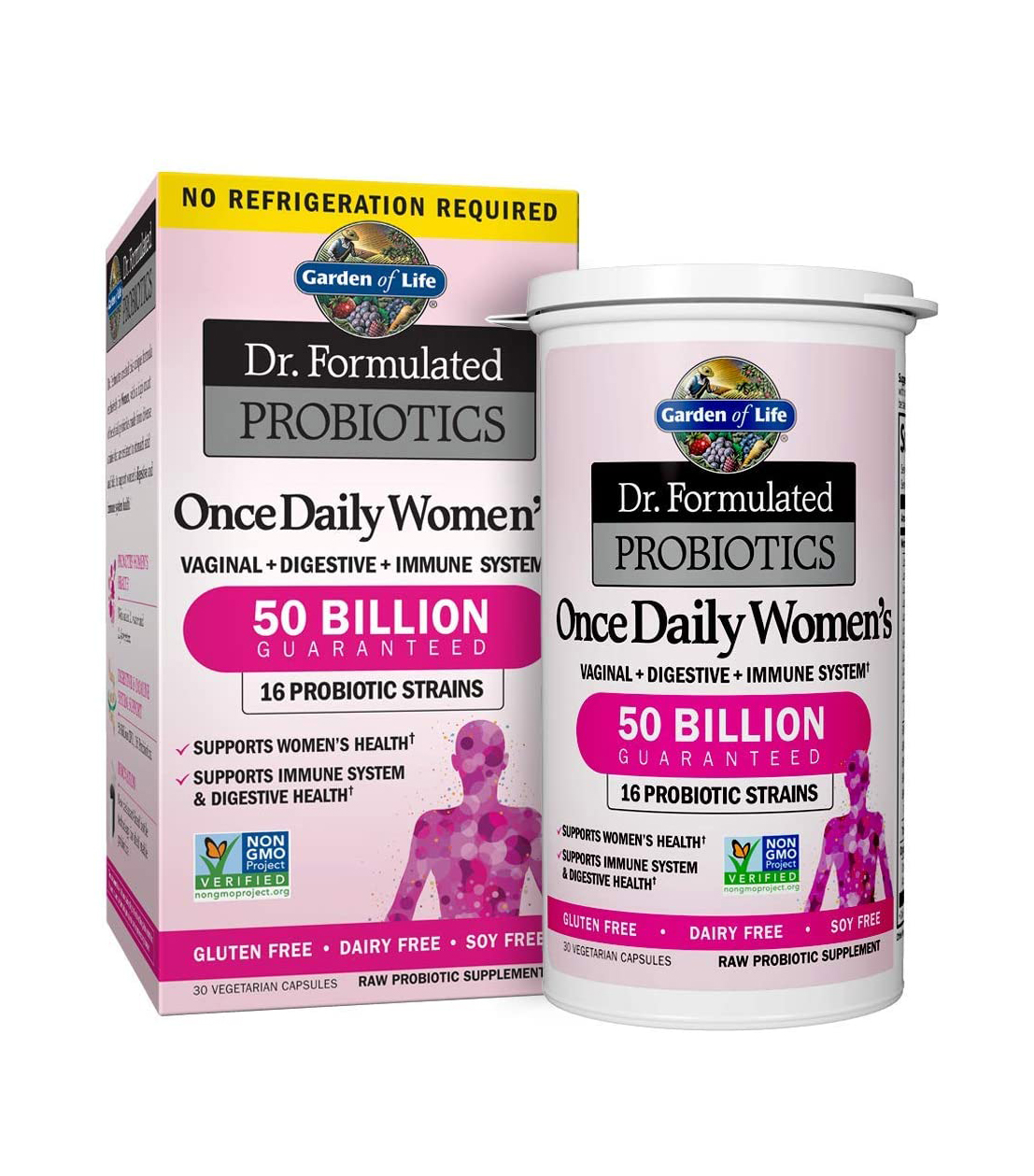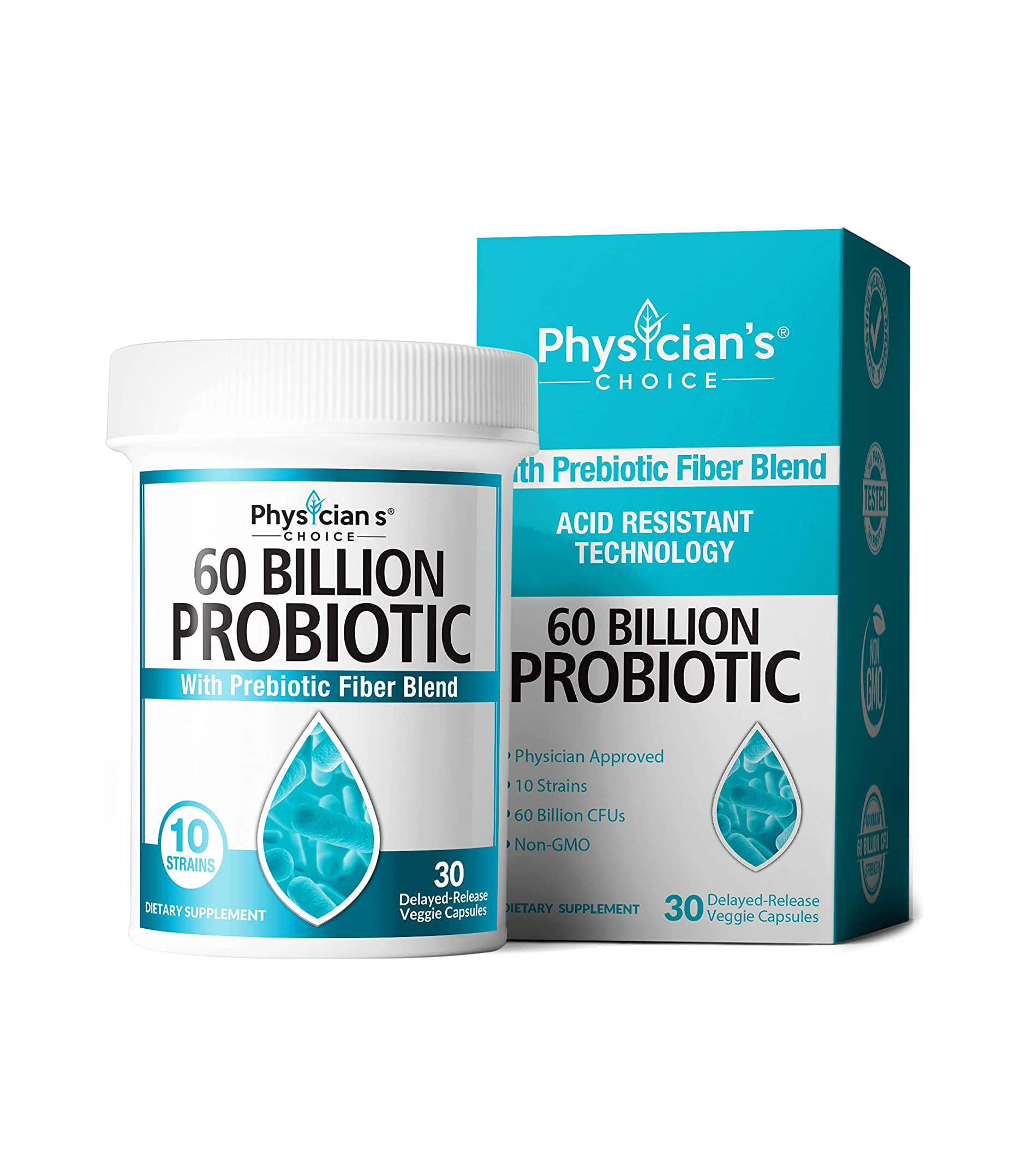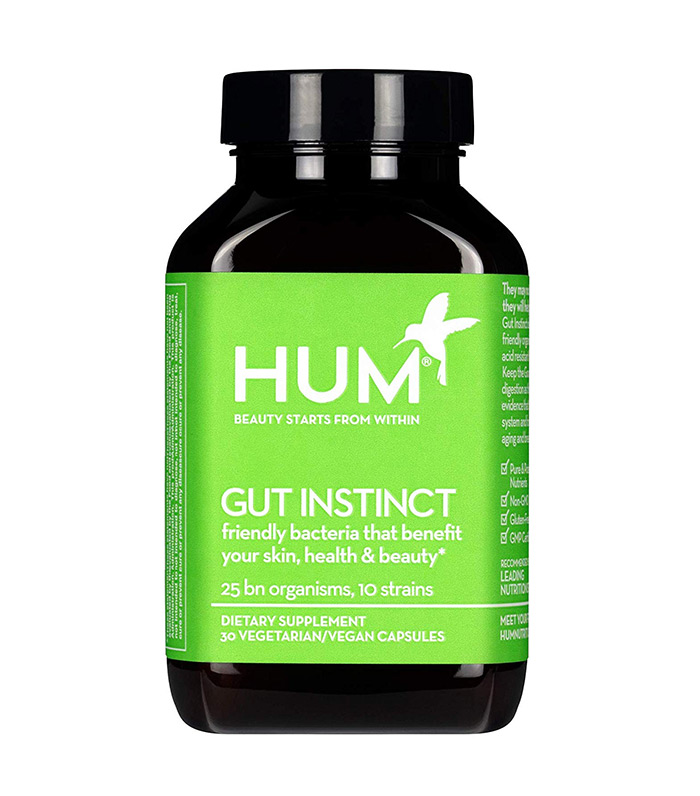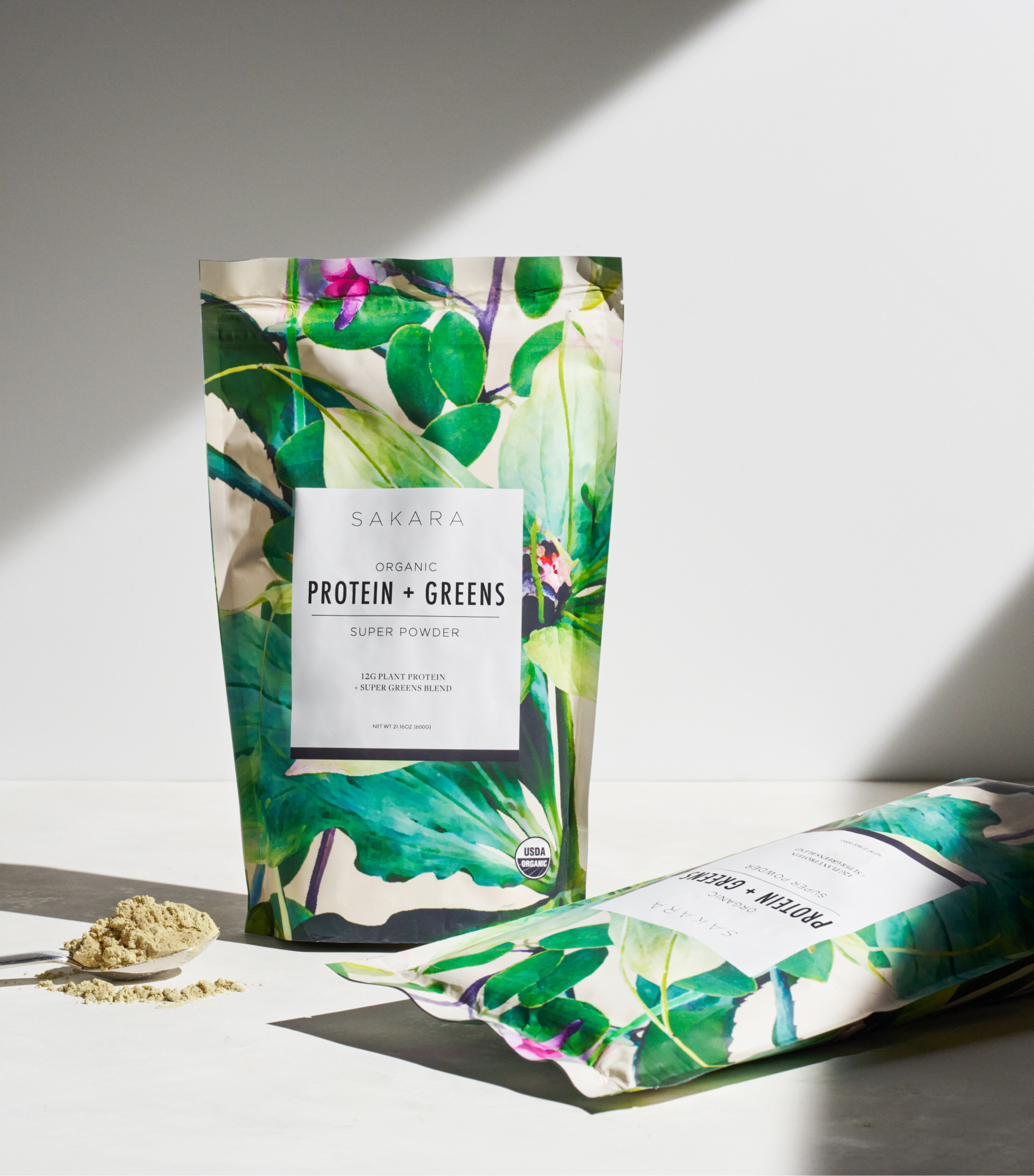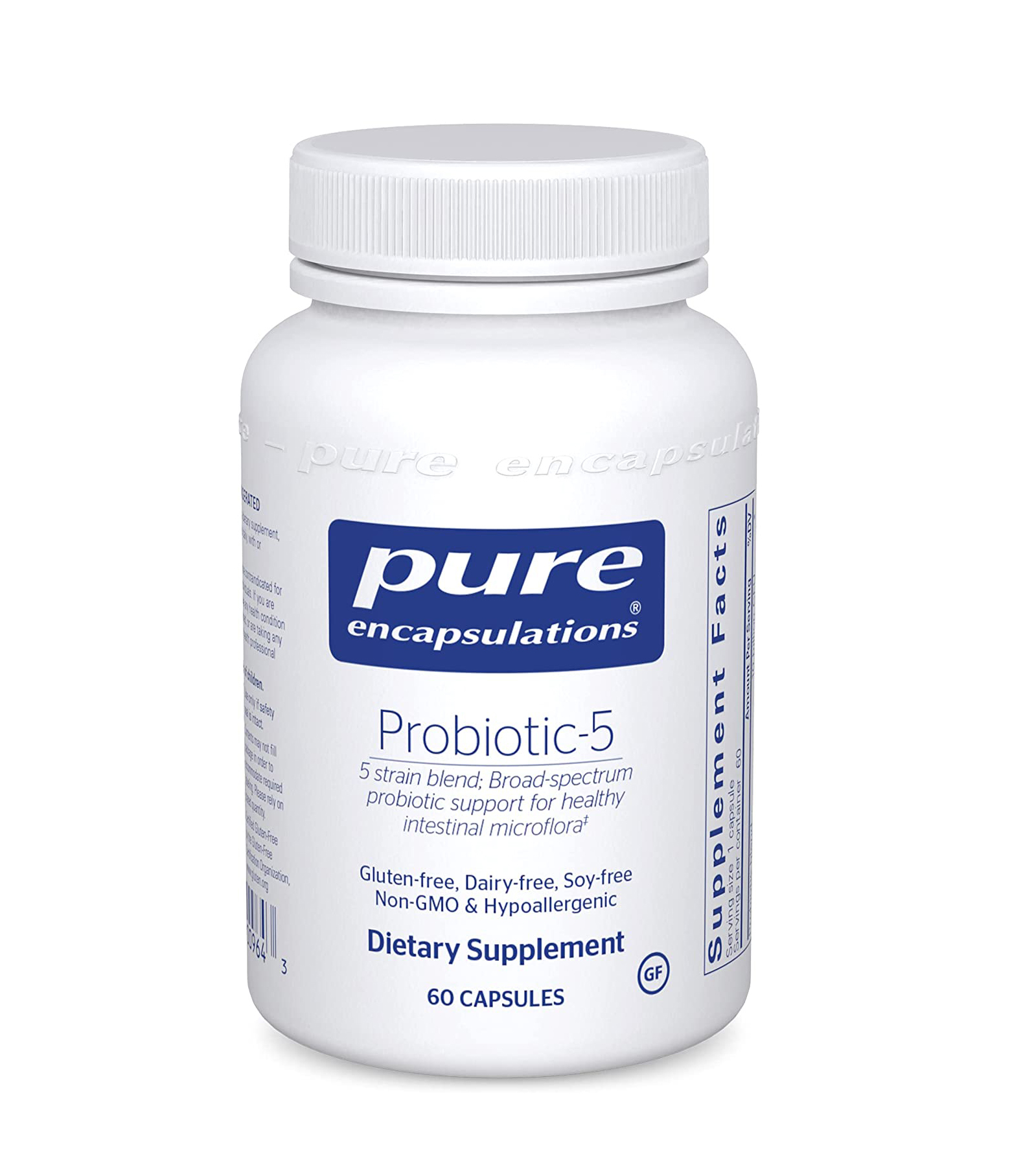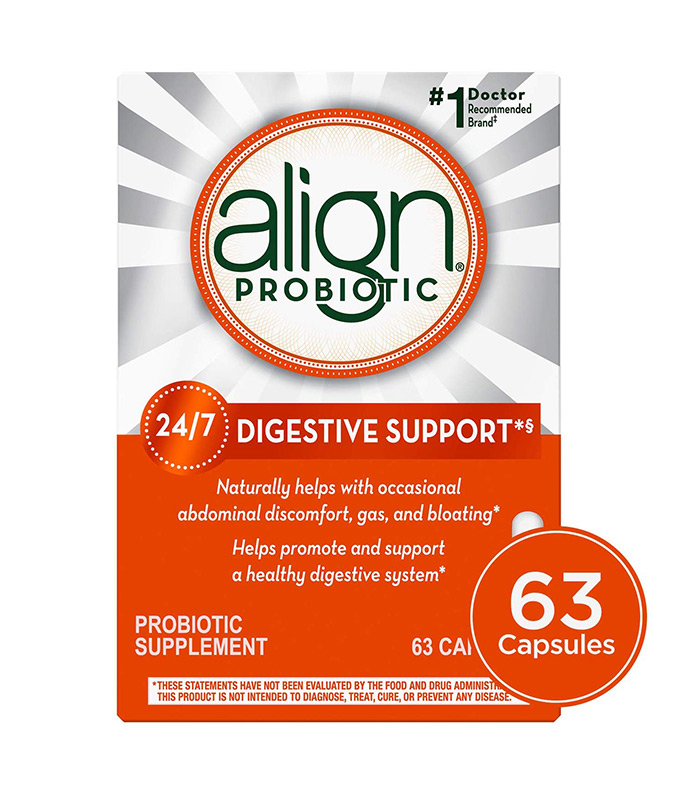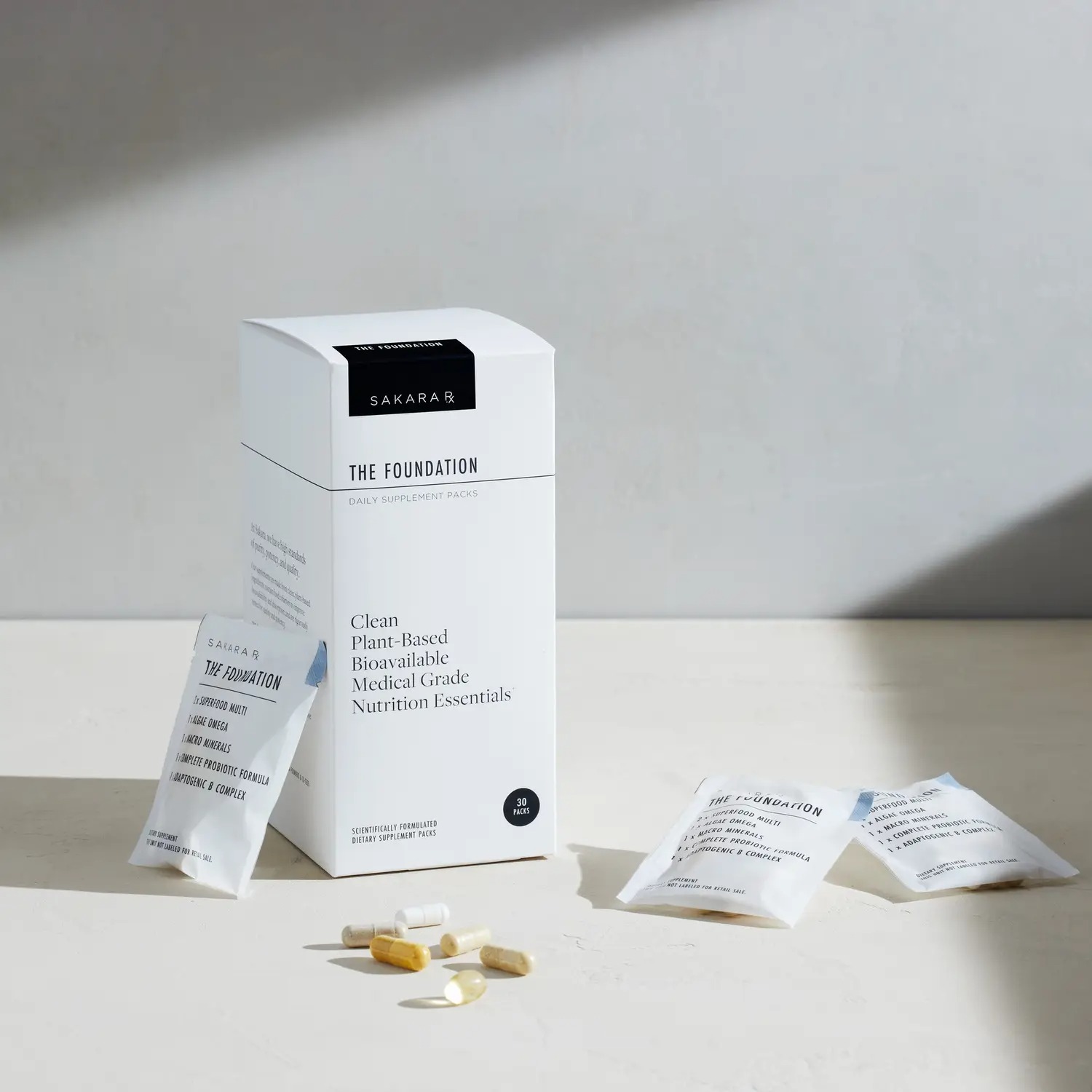Can Probiotics Really Help With Bloating? I Asked Experts for the Truth

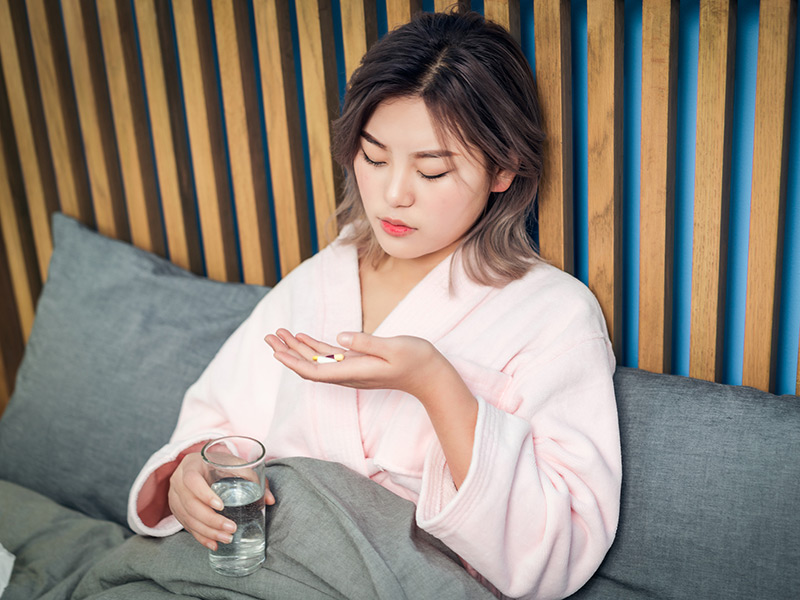
Lately, we've overheard lots of buzz surrounding belly bloat and just as many buzzworthy antidotes. One such solution garnering more and more attention for its de-bloating and gut-improving abilities is the all-hailed probiotic. In fact, it seems as if the current wellness climate is calling for probiotics as the ultimate fix for virtually every kind of ailment: from anxiety to acne to—you guessed it—bloating.
That being said, the research only goes so far, and front-loading all our faith into one supplemental solution is always a dangerous game to play. And remember, if you're experiencing bloating, the first stop you should make is to your doctor's office—not your Amazon prime account. If your doctor gives you the all-clear, it's important to be well-informed on the supplements you're shopping for. And probiotics are no different.

So can the praise surrounding probiotics for bloating really be verified by experts in the field? We decided to ask. And as someone who has previously felt like probiotics made my bloating worse, I had an especially piqued interest. To get to the bottom of the question, I wanted to get back to the basics (ahem, science) and interviewed Richard Lin, the CEO of microbiome wellness company Ombre, and Kelly Heim, PhD, Senior Scientific Director of Genomics and Pharmacology at Atrium Innovations.
1. What causes bloating?
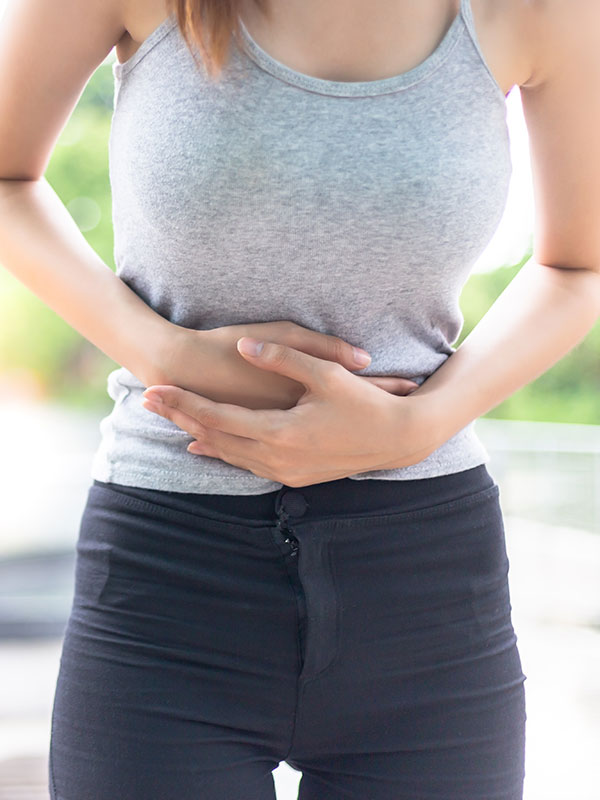
Like most health-related questions, there isn't one exact (or simple) answer. As Lin (who regularly works with leading scientists, nutritionists, and doctors in the field) explains, bloating can often be caused by SIBO, otherwise known as Small Intestinal Bacterial Overgrowth. "Methanobrevibacter smithii, Methanosphaera stadtmanae, and other Methanobacteriales, which are speculated in SIBO, are able to synthesize methane, which causes gas to build up, inducing the physical sensation of bloating."
In other words (because, yes, that was a lot of terminology), occasional gas, bloating, or a disruption in your daily bowel habits are all common signs of an unbalanced gut microbiome. Confirms Heim: "Your gastrointestinal tract contains over 500 bacterial species that work together to facilitate digestion and promote overall well-being, and if the balance of these bacteria is disrupted—typically from things like medication use, stress, travel, and poor diet—you may notice it in the form of digestive trouble and bloating."
2. How do probiotics come into play?
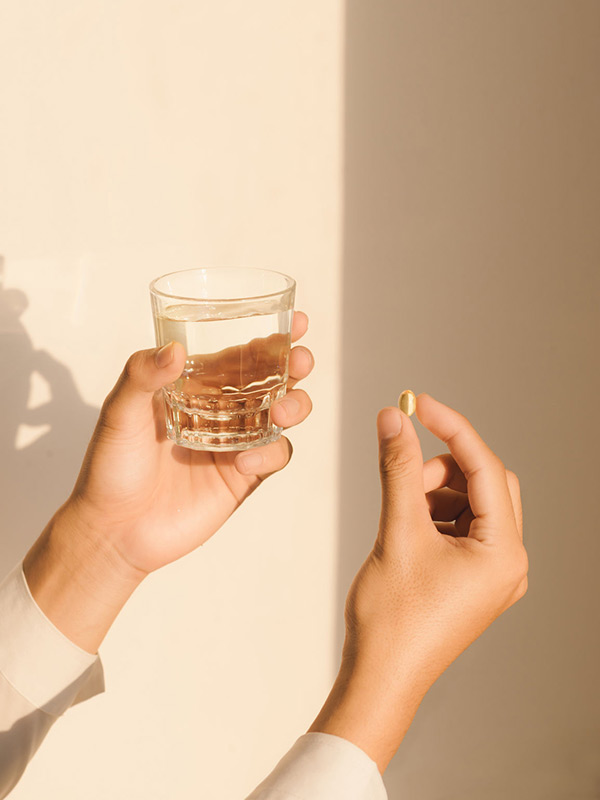
According to Lin, studies have shown that certain (but not necessarily all) probiotic strains can help relieve symptoms of bloating. And while he openly admits that scientists aren't exactly sure why these probiotics (namely Lactobacillus acidophilus and Bifidobacterium lactis) can put the brakes on gas production, it's becoming increasingly known and accepted that probiotics (aka the good bacteria in our digestive system) can help support a healthy microbial balance in the gut. Which in turn, should help discourage or alleviate bloat.
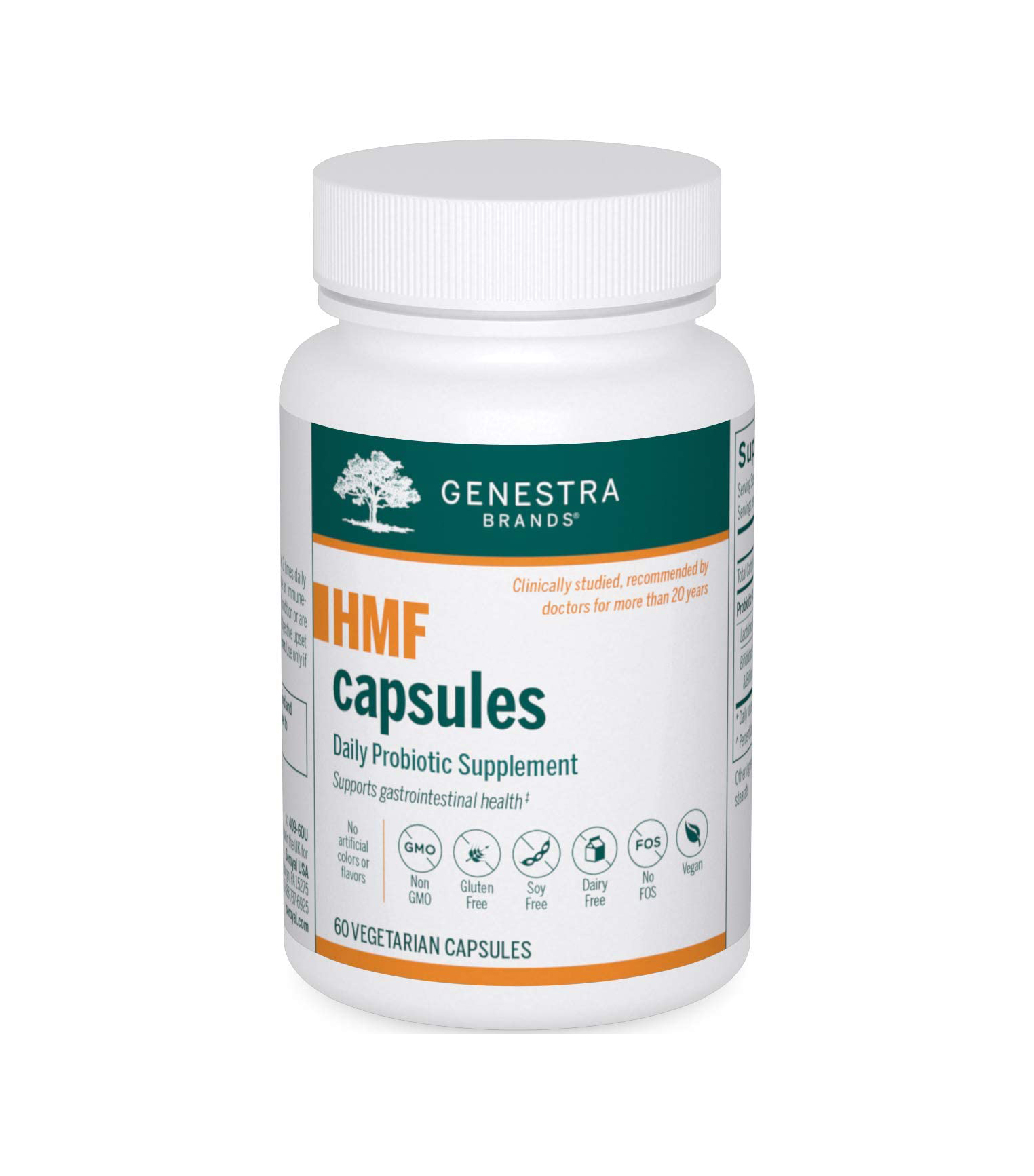
"When shopping for probiotics for bloating, I recommend looking for a high-quality, clinically studied probiotic supplement containing a few strains of both Lactobacillus and Bifidobacterium. I like Genestra's HMF Multi-Strain Formula, which features tried-and-tested strains of bacteria (used for over 20 years) to support intestinal balance and issues like bloating," shares Heim. These strains are freeze-dried, which helps preserve bacterial activity and ensures the survival of bacteria during storage. (Ed. note: The potency and survivability of probiotic supplements is a common talking point—and is highly debated—within the health and wellness industry.)

For bloating specifically, Lin recommends any probiotic containing the following strains: Lactobacillus acidophilus, Bifidobacterium lactis, Lactobacillus plantarum, Lactobacillus rhamnosus, Lactobacillusgasseri, Bifidobacterium infantis, Bifidobacteriumlongum, Lactobacillus acidophilus, Lactobacillus salivarius, Lactobacillus sporogenes, and last, but certainly not least, Streptococcus thermophilus.
And if you're interested in a customized approach (which frankly, seems to be the future of the supplement industry considering such popular brands as Ritual and Care/of), Ombre provides personalized probiotics specific to your health concern. (Prepare yourself: You literally send them a sample of your poop.) For instance, if you list bloating as one of your concerns in the questionnaire they send you, the brand will incorporate the most helpful strains (seen above) into the formula to help alleviate your bloating symptoms. Innovative, to say the least.
3. When should you take a probiotic for bloating?
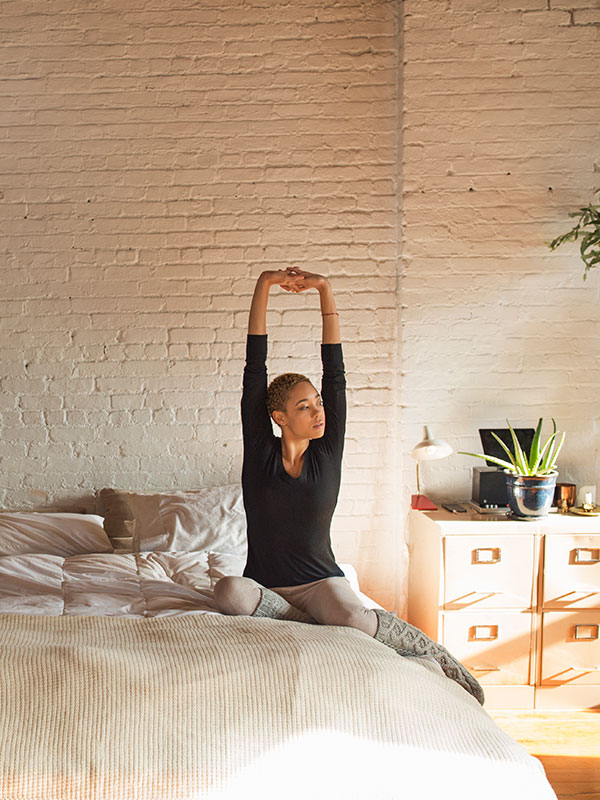
Again, this question is commonly debated, and virtually everyone seems to have a different answer. "Depending on the person, bloating can happen at any time during the day," explains Lin. "However, it's been shown that our gut is the most active in the morning and after a meal. Therefore, I typically suggest taking a probiotic right when you awake or right before a meal to calm the stomach prior to the gut wave cycles."
4. How do lifestyle factors come into play?
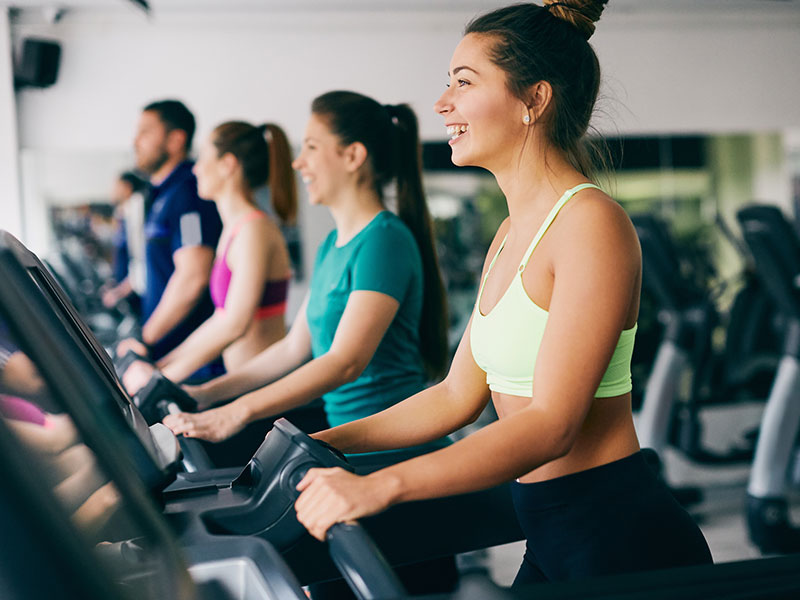
As we mentioned earlier, no supplement or vitamin will ever serve as a one-pill wonder or magical cure-all (regardless of how impressive the marketing tactic). Therefore, it's fortuitous to be realistic regarding other factors that can come into play and could possibly impact (positively or negatively) the efficacy of a probiotic.
"Stress, medications, travel, and a poor diet can all throw your microbiome off balance, which can lead to undesirable symptoms like digestive distress, gas, and bloating," Heim tells us. And especially in terms of diet, some foods (both healthy and lesser so) can cause some issues. For instance, vegetables can be problematic in addition to certain types of sugars.
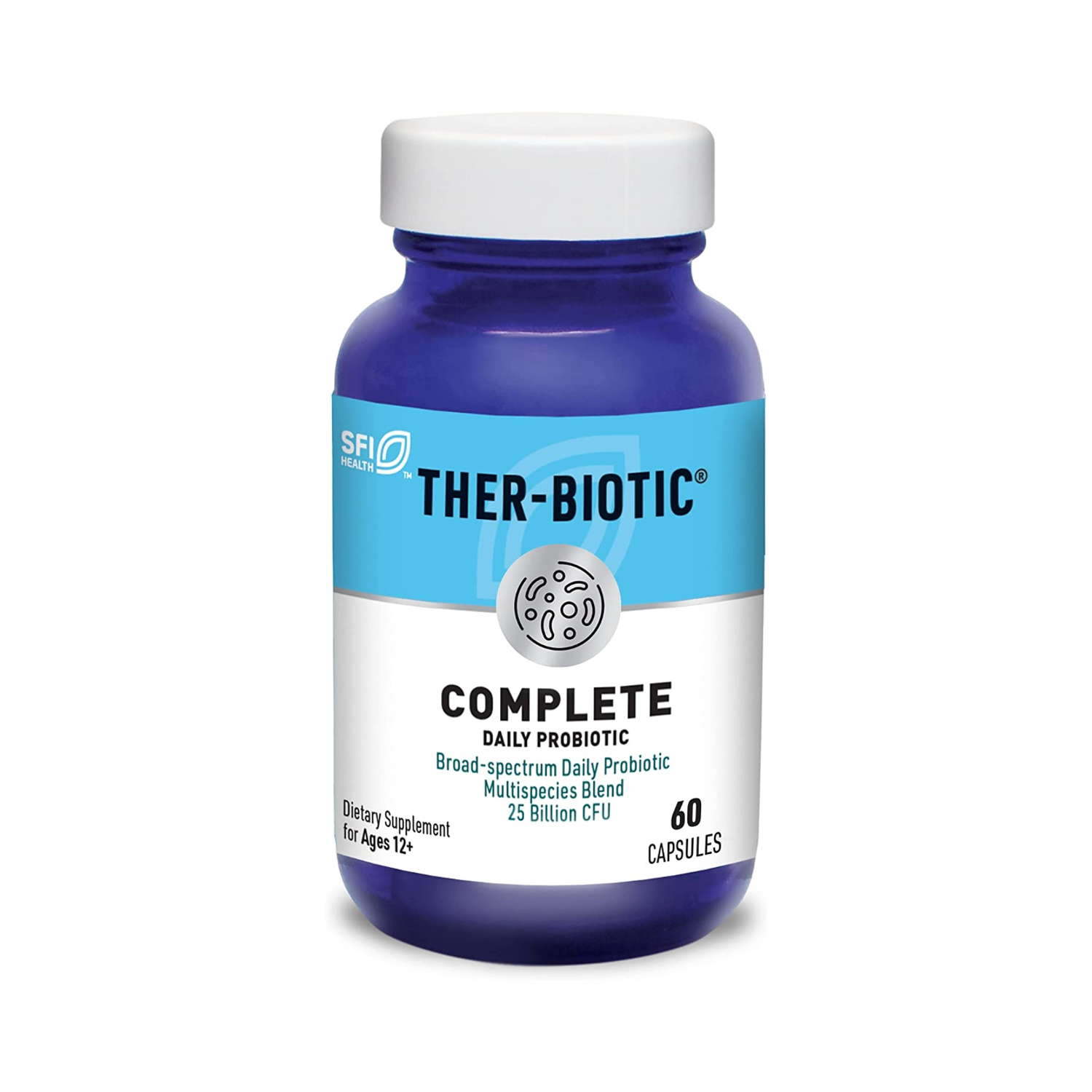
"A diet that's low in FODMAP (which are fructose, galactooligosaccharides, disaccharides (lactose), monosaccharides (fructose), and sugar alcohols (polyols), such as sorbitol, mannitol, xylitol, and maltitol) may help keep bloating at bay," Lin tells us. "Foods are composed of short-chain carbohydrates, which are known to feed the beneficial bacteria in the gut, which essentially is like throwing a party in the colon, creating gas, drawing in water, and more. For a person dealing with bloating, this may increase their symptoms."
That being said, one lifestyle factor that can enhance your probiotic and naturally lessens bloating is exercise, as it has been shown to increase the motility of the gut and keep gas from sticking around too long in the digestive tract.
5. Avoid going from zero to 100 with a probiotic
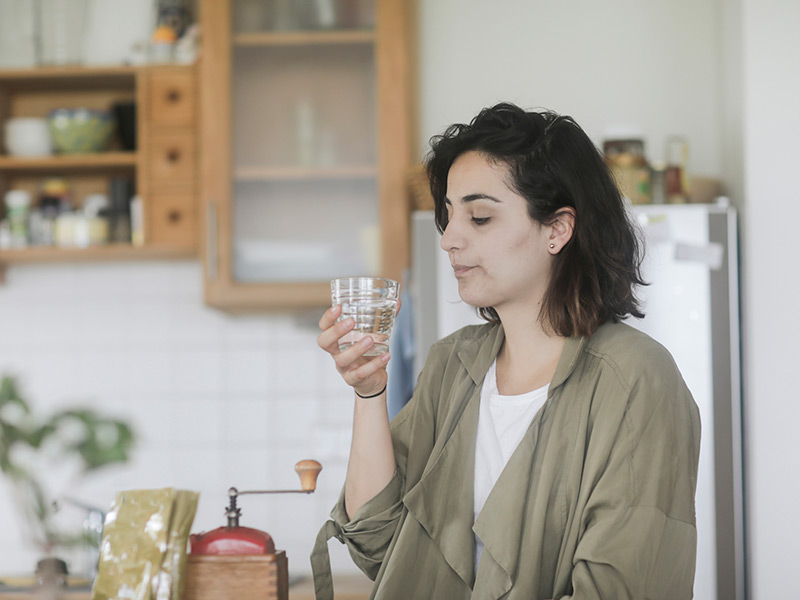
In other words: More is not necessarily more, and moderation—especially in the beginning stages of incorporating a probiotic—is key.
Interestingly, Lin explains that noticing increased bloat with a new probiotic might actually signify that your gut environment is already pretty healthy. "If the probiotic CFU is too high, say 150 to 200B CFU per serving, this can cause potential bloating and constipation in some healthy people. However, for people dealing with more serious gut issues like IBS, Crohn's Disease, or Ulcerative Colitis, the higher CFUs are actually more beneficial with fewer side effects."
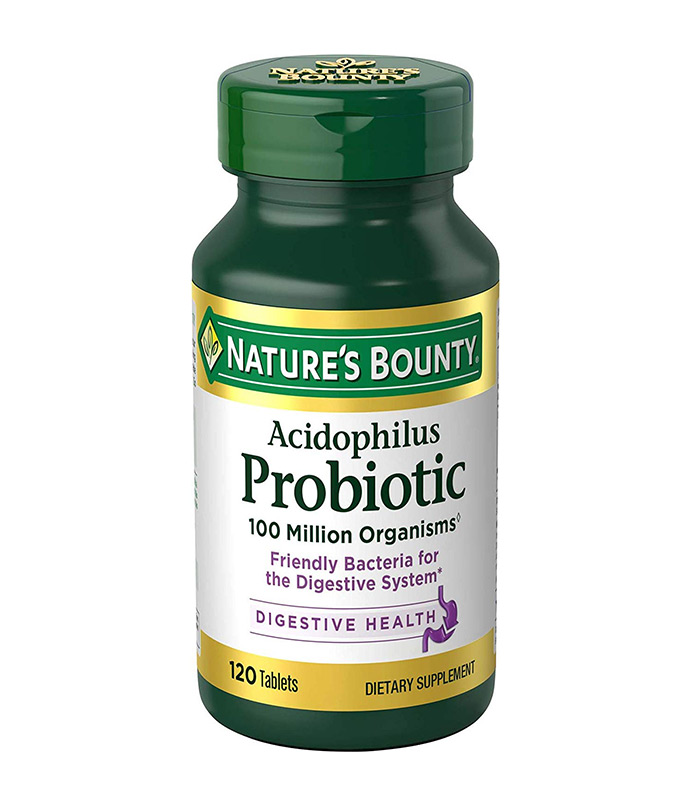
Heim agrees, admitting, "It is possible to see some gas and bloating when adding a probiotic supplement to your regimen." She also advocates starting low and going slow, saying, "Probiotic dosages range tremendously from 1 to 500 billion CFUs. We recommend consulting with a healthcare professional to find out what dose is right for you."
In other words, please don't reach for the first bottle you see on the shelf or order a probiotic just because your favorite Instagram Influencer regularly sings its praises. Although taking a probiotic has the potential to help relieve bloating, it's not necessarily the ultimate answer and could work more effectively for some than others. At the end of the day, it's best to talk to your physician about any and all health concerns and to create a customized game plan—supplements included—from there.
Up Next: These Are the Only 8 De-Bloating Products and Tricks a Health Advisor Recommends
This article was originally published at an earlier date and has since been updated.
This article is provided for informational purposes only and is not intended to be used in the place of advice of your physician or other medical professionals. You should always consult with your doctor or healthcare provider first with any health-related questions.

Erin has been writing a mix of beauty and wellness content forBest Knockoff Luxury Clothing for over five years. Prior to that, she spent two and half years writing for Byrdie. She now calls Santa Monica home but grew up in Minnetonka, Minnesota, and studied writing, rhetoric, and communication at University of Wisconsin, La Crosse. She studied abroad in Galway, Ireland, and spent a summer in L.A. interning with the Byrdie andBest Knockoff Luxury Clothing family. After graduating from UW, she spent one year in San Francisco, where she worked as a writer for Pottery Barn Kids and PBteen before moving down to L.A. to begin her career as a beauty editor.
